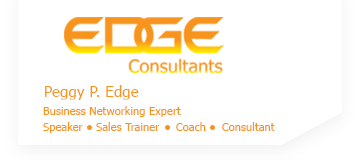Strategic Alliances: A Great Way to Leverage your Expertise or Product Offerings
A Strategic Alliance is a joint venture between two companies or two people in the co-relational industries.
As a small company in the industrial packaging industry, for 16 years I have used strategic alliances at Edge Packaging Systems, www.edgepackaging.com, to leverage and maximize my offerings to clients.
How I have accomplished this is to partner with companies who have expertise in areas that I have either cursory knowledge or they can provide me with a look of a much larger organization than I am thus being able to provide my clients with just about anything they need.
Some examples of how you can create a business partnership include:
Competitors – yes seek out those who have a mutual interest to help you.
Expertise: If they have a particular expertise that you lack, consider how you can use them as consultants for a project.
Product Offerings: If you have a need for your client but cannot provide from your current sources, look at the possibility to partner with a competitor.
When you partner with a competitor, obviously you must lay down some ground rules that will make it mutually beneficial to both of you.
Vendors – are a great resource for helping finance business ventures.
Financial: Many vendors will give extended terms to emerging companies to help them jump start their businesses. Sometimes it is a matter of asking for the assistance.
Utilizing the expertise of a competitor or obtaining the financial assistance from a vendor is just two great means to leverage your company and product offerings. Usually it is just a matter of asking for the help. It could be your EDGE over Your Competition!
Peggy P. Edge (c) 2014
What is your Edge over your Competition?
If you can’t put a Square Peg in a Round Hole, then what is your EDGE over your competition?

Too many times sales organization try to emulate what their competition is doing. They create products and services that are “me too” and that dilutes your ability to be unique, special, innovative, i.e., different.
I sell products that are highly standardized. As a matter of fact, my clients can purchase many of the brands that I sell elsewhere.
So what makes me different? What is my “Edge” over my competition? It is my red hair, my wild and crazy personality; it is the Brownies that I have made for my clients each year during the holidays.
Brownies! Seriously, that is what one client told me several years ago. I asked, “Kyle, why do you do business with me?” He said, “It’s those wonderful brownies that you bring me every Christmas.”
Usually around July, he and some of my other guys will start in on me by asking, “Isn’t it about time for some of those Brownies?” I answer, “It ain’t Christmas yet!”
In the marketplace, when all things appear to be equal, there are just a few little details that can make you stand out and shine to your clients. So share with me, what is your Edge?
Peggy P. Edge (c) 2013
Professionalism in the Market Place
I have been asked to speak to the Nursing students at a local college. I look forward to sharing my 30+ years of war stories in sales with these young people.
Most likely they will roll their eyes at some of my fuddy-duddy ideas of being a professional in the marketplace. However, some rules never go out of style like, dressing for success not dressing to your own desire–pants-on-the-ground, pink hair, body piercings, etc.
Every industry has prescribed guidelines for what is professional in their market. Before you go to that first interview you should be aware that you will be meeting someone who is going to make a judgment about you and your character within the first 5 seconds you walk into the room.
Recently a young friend of mine interviewed for a job at a major telecommunications manufacturer here in the DFW area. Prior to her interview, she was told by the agency that she was working with that she would not be allowed to carry a cell phone into the facility—it must be left in the car. Oh my, what would she do if someone needed to call her during that time? Well, duh, they would just have to leave a message.
Yes, some corporations do not allow personal cell phones in the office. Can you imagine 8 hours of not being in touch with your friends?
I think very few young people coming out of high school and college these days have a sense of what it takes to be successful in a job. I’m not trying to negative here just realistic.
The bottom line is that if you want to be considered as a professional, you must first look and act the part.


